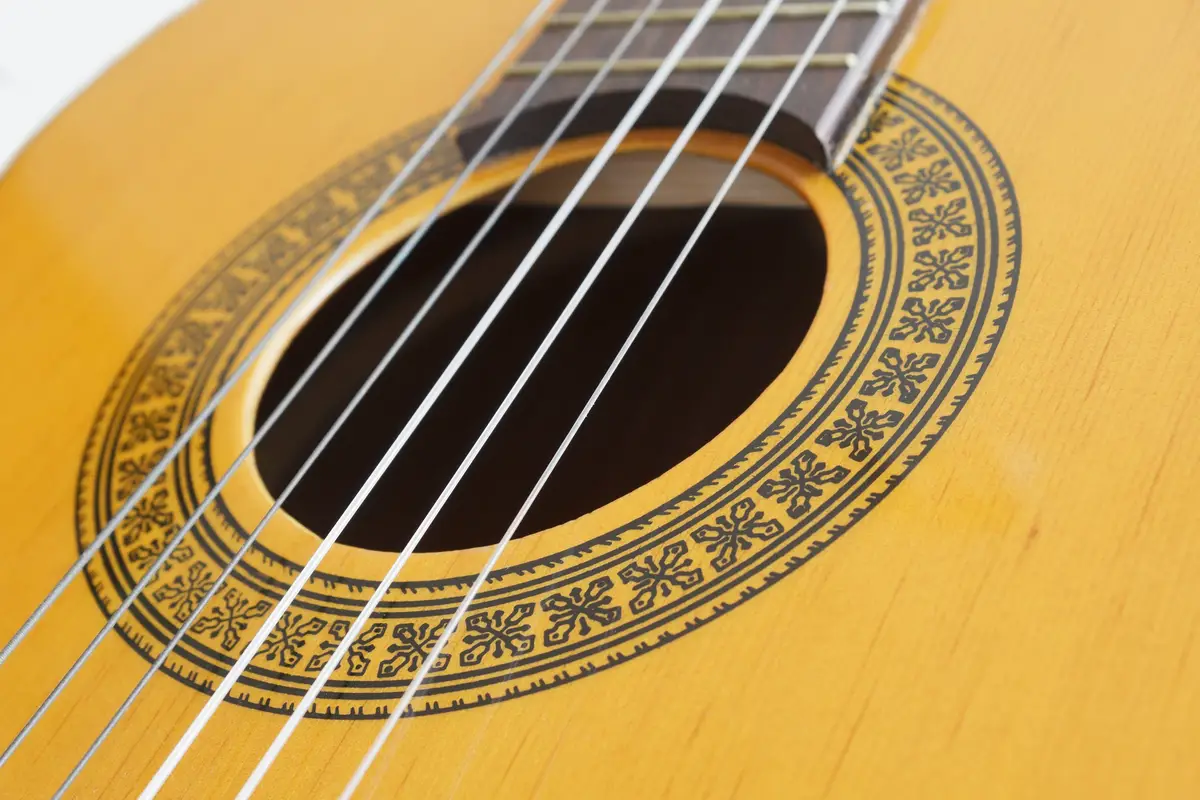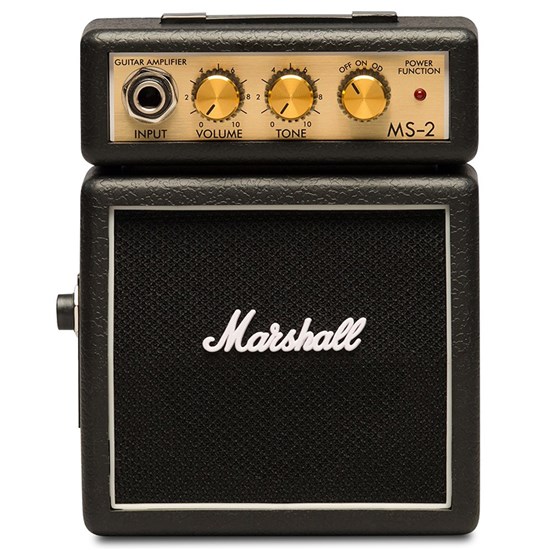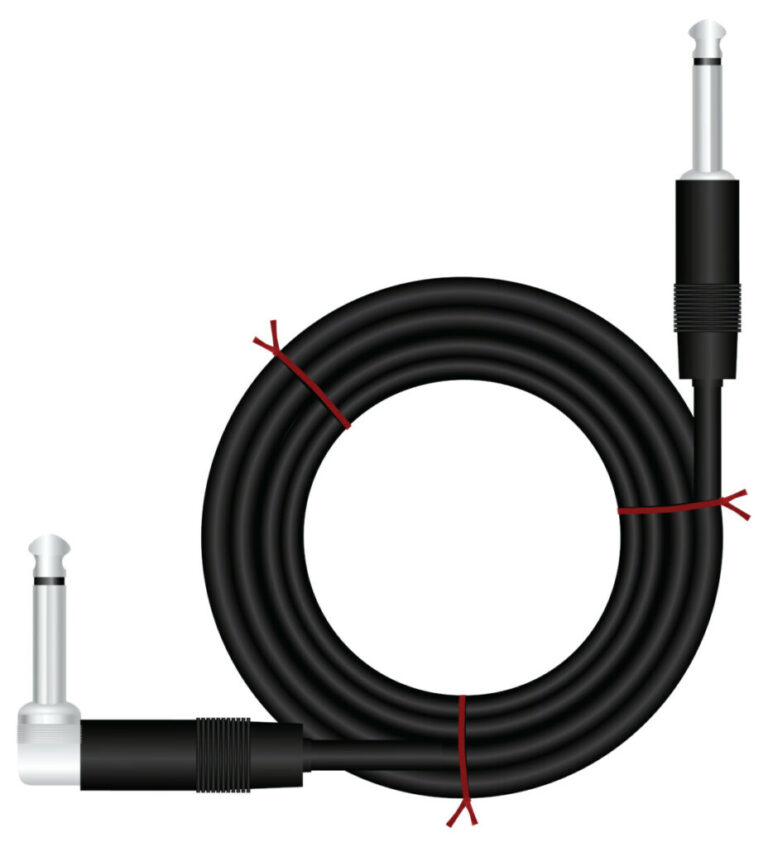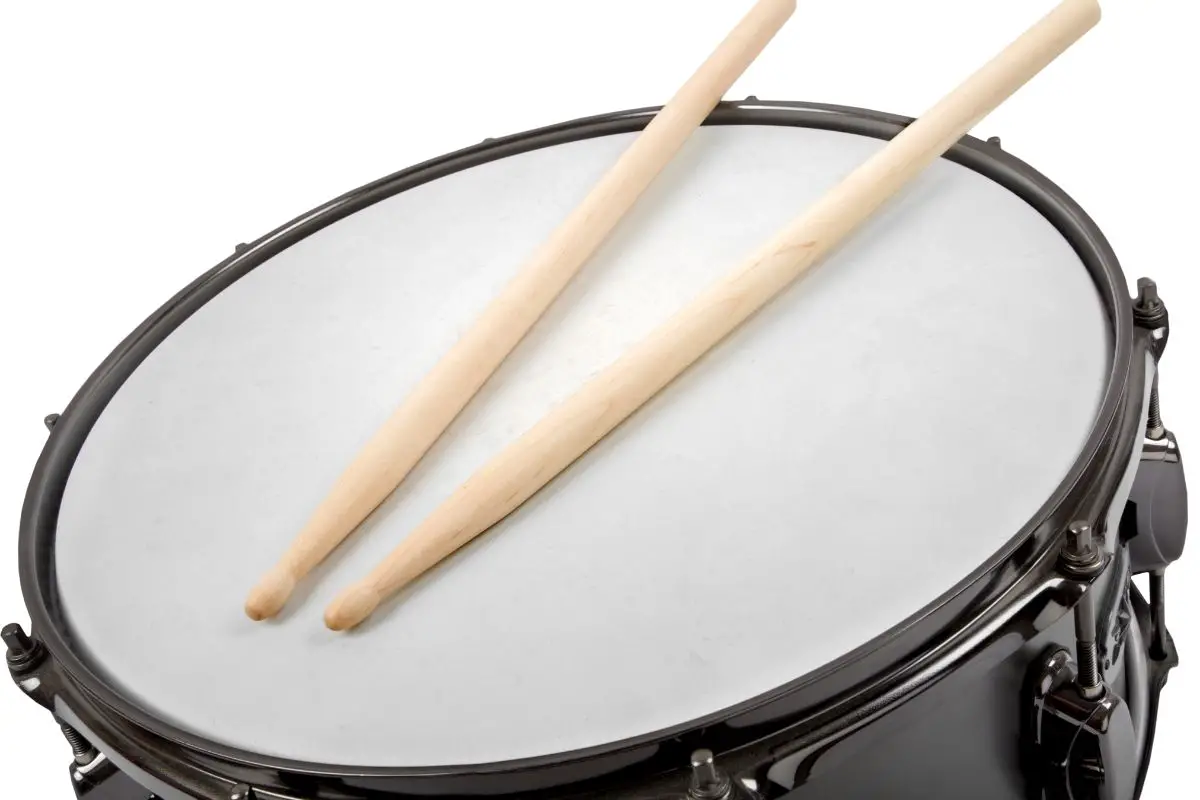The Five Best Strings For Classical Guitar
When choosing strings for your guitar, you must consider the type of guitar you own. The right strings for an electric guitar will be wrong for an acoustic guitar.
Similarly, a classical guitar requires different strings from what you would use for an acoustic instrument. In fact, the strings separate a classical guitar from an acoustic guitar.
Since the strings are a fundamental component of what makes a classical guitar, it’s important to make the right choice. If you don’t know which string is best for you, then you need to find out.
We’ve looked through classical guitar strings and picked the five best classical guitar strings. Below, you’ll find a guide to the best and how you can pick them
The Best Strings For Classical Guitar
D’Addario EJ45TT ProArte DynaCore Classical Guitar Strings
- CLASSICAL NYLON STRINGS – Pro-Arte’ Dynacore strings offer a traditional classical string foundation, elevated with modern advancements in production technology, to create a truly unique, contemporary tone.
- TITANIUM NYLON TREBLES – Utilizing Dynacore twisted multifilament nylon basses and titanium trebles, Pro-Arte’ Dynacore strings provide unparalleled intonation and responsive attack, as well as distinct balance and increased resonance in the top-end.
- TIE ENDS – Dynacore sets features tie-ends, Dynacore multifilament material, and silver-plated copper wrap wire.
- EARN REWARD POINTS – D’Addario Pro-Arte’ Dynacore classical guitar strings come with a code on the recyclable, resealable VCI bag, which you can register to earn Players Circle points.
- MADE IN THE USA – Our classical strings are made in the USA—drawn to exacting specifications at our New York production facility.
Our top choice for the best classical guitar strings are the D’Addario EJ45 ProArte DynaCore Classical Guitar Strings.
D’Addario makes these strings with specially treated nylon cores that provide a smooth tone while maintaining excellent durability. The D’Addario EJ45 strings can last a lifetime.
Because the composite core of each string is very flexible, these strings can produce a round, full tone with excellent projection. Meanwhile, the Titanium string material ensures that the strings resonate with bright, clear notes. The D’Addario EJ45 strings have normal tension, so while they might not be as loud as high-tension classical guitar strings.
D’Addario’s packaging also helps buyers to make provisions for future guitar maintenance! You can buy these strings in packs of 1 or 3 sets, so it’s easy to order some backup strings for when they eventually need replacing again.
The packaging that the strings come in is corrosion resistant. This helps to ensure that even if you expose your strings to moisture in storage, they are less likely to be damaged.
Pros
- Titanium material – Clear, bright notes
- Nylon core – Full tone
- Normal tension – Clean sound
- Rust-resistant packaging – Good longevity
- Multipacks available – Buy backup strings in advance
Cons
- Bass strings more muted than others – Lower-quality bass
Savarez Corum Alliance 500AJ High Tension Classical Guitar Strings
- High-Tension, Blue
- KF trebles, Corum basses
- Country of Origin: France
If you’re looking for the best classical guitar strings, then Savarez Corum Alliance 500 AJ may also be the answer. Savarez makes these strings with a special alloy that provides a brighter, clearer tone. They are also extremely durable.
Savarez makes the treble strings from the Alliance KF monofilament, which is extremely durable – even more so than nylon. This means that your strings will hold up for a long time before you need to replace them.
Meanwhile, the bass strings are made from Corum. This alloy has a higher tensile strength than other materials, meaning that it won’t break easily under pressure. It also delivers a very full sound with a round quality.
While the bass strings are slightly louder than the treble strings, they still offer a delicate balance between volume and clarity. Because the strings are all high-tension, you can count on being able to play at a decent volume. So, if you like to entertain entire rooms of people on your classical guitar, these strings will be perfect.
Corum strings are also silver-plated, meaning that they are resistant to rust. The silver plating also allows the strings to be flexible enough for comfortable playing while maintaining an appropriate level of stiffness.
Speaking of the stiffness of these strings, because they are high-tension, they feel quite stiff at first. You’ll need to spend some time breaking them in before you can appreciate their optimal sound.
Pros
- KF monofilament trebles – Highly durable
- Corum bass material – Round sound
- High-tension – Plenty of volume
- Silver plating – Rust-resistant
Cons
- Strings feel tight at first – Need breaking in
Savarez 540R Alliance Classical Guitar Strings
- Alliance Series
- Normal tension
- Carbon trebles, silver Plated wound basses
- The normal-tension 540R sets are made up from kgf alliance plain composite trebles (so called carbon strings)
- The normal-tension 540R sets are made up from KF ALLIANCE plain composite trebles (so called carbon strings).
Another set of guitar strings from Savarez that we would recommend is the 540R Alliance Classical Guitar Strings.
These strings have a similar construction to the Corum strings from Savarez listed above. Like the last strings, these bass strings are silver-plated, so they are more resistant to rust and also feel great when you play.
Savarez also made the trebles in this string set from the same Alliance KF material as the previous Savarez set as well. Alliance KF is an excellent choice of material for guitar strings because it is so durable.
Replacing your guitar strings every few months can feel very frustrating and time-consuming, and the Savarez 540R strings will minimize how often you need to do this.
Mostly, these classical strings produce amazing sound quality. However, it has to be said that the strings can slip out of tune relatively easily. However. these will still do fine for those who put less wear and tear on their strings.
Pros
- Normal-tension – High-quality sound
- Alliance KF trebles – Impressive durability
- Silver-plated – Good flexibility and rust-resistance
Cons
- Strings fall out of tune easily – Frequent retuning required
D’Addario EJ27N Student Nylon Classical Guitar Strings
- CLASSICAL GUITAR STRINGS – D’Addario’s Classic Nylon guitar strings are great for beginners, students and professionals alike that are known for the optimal balance of warm and projecting, long lasting tone.
- STYLE – Normal tension, Clear Nylon, Non-Ball End
- VALUE, RELIABLE – A great balance of value and reliability
- STRING GAUGES – The gauges in this classical string set include: .0280, .0319, .0402, .029, .035, .043
- MADE IN THE USA – D’Addario leverages centuries of string-making experience and advanced computer-controlled winding technology to bring you the most durable, consistent and long-lasting guitar strings. Made in the USA for the highest quality and performance, only D’Addario strings are sealed inside and out.
D’Addario is one of the biggest names in guitar string manufacturing, so it should come as no surprise that a few of D’Addario’s products have made our top five.
The D’Addario EJ27N Student Nylon Classical Guitar Strings use clear nylon, which bodes very well for the durability of the strings and the warmth and projection of the sound produced.
Thanks to the silver plating on the strings, they feel smooth under the player’s fingers and will not easily succumb to rust, even when exposed to rain or general moisture in the air.
These normal-tension strings aren’t the loudest on our list, but like all of our top 5, they excel in terms of sound quality. As we mentioned, there is excellent projection, but the notes are also crisp and tone-accurate.
D’Addario’s rust-resistant packaging will help you out if you do decide to choose the 3-pack option at checkout. You can have a couple of sets of these strings in storage without worrying about moisture damage until you need a replacement.
Our only criticism of these strings is the fact that the color-coded markings, which should help buyers differentiate the strings from one another, are fairly difficult to see.
This means that stringing the guitar might take longer than usual because it’s tricky to tell these strings apart.
Pros
- Clear nylon – Good projection and warmth
- Silver plating – Smooth and rust-resistant
- Normal-tension – Crisp, accurate sound
- Rust-resistant packing – Protective
- Available in packs of 3 – Easy to pre-buy
Cons
- Poor color marking – Difficult to tell strings apart
D’Addario EJ25B Pro-Arte Black Nylon Composite Flamenco Guitar Strings
- CLASSICAL TONE WITH ELEVATED BASS – Pro-Arte’ Nylon Composite strings offer traditional classical guitar tone, with an elevated bass response.
- SWEET, MELLOW HIGHS & COMMANDING LOWS – Utilizing our composite core basses and clear nylon trebles, Pro-Arte’ Composite strings provide a delicate balance between sweet, mellow highs and commanding lows.
- EXTRA STRING – This set has black nylon treble strings, with an extra, optional composite 3rd/G-string for increased projection.
- EARN REWARD POINTS – D’Addario Pro-Arte’ Composite classical guitar strings come with a code on the recyclable, resealable VCI bag, which you can register to earn Players Circle points.
- MADE IN THE USA – Our classical strings are made in the USA—drawn to exacting specifications at our New York production facility.
Our last choice is also a string set from D’Addario. This set of classical strings is called the EJ25B Pro-Arte Black Nylon Composite Flamenco Guitar Strings. These are the perfect strings if you’re hoping to use your classical guitar to play Spanish melodies!
The nylon strings have a superb level of flexibility, so they’re easy to play with. However, they keep the proper amount of firmness, allowing for the rhythmic lightness of traditional flamenco music.
We love that these strings are custom tension, meaning that you can adjust their tightness or looseness according to the player’s preference. This makes it easier to play in a way that feels familiar to you even after a change of strings.
It also means that you can create almost any sound you like (within reason). These strings are, like many of the strings on our list, silver-plated.
Because of this, you can expose them to moisture without too much concern about damage to the strings, although we would always recommend avoiding situations like this if possible.
Like all the strings we’ve reviewed from D’Addario, these come in corrosion-resistant packaging to keep them safe until you need to use them.
Interestingly, we noticed that the treble strings in this set slip out of tune more easily than the bass strings. You will need to monitor this and tune up your guitar as needed to maintain pitch accuracy.
Pros
- Nylon material – Flexible but sharp
- Custom tension – Versatile
- Silver plated – Resistant to rust
- Corrosion-resistant packaging – Long-term safety
Cons
Treble strings fall out of tune – Some re-tuning will be necessary.
Buyer’s Guide
If you want to learn how to play the classical guitar, then you’ll probably want to invest in some quality classical strings. We’ve put together a buyer’s guide to help you get started with choosing the right strings so you can achieve the sound quality and ease of playing you’ve always dreamed of!
What is a good string material for classical guitar?
Classical guitar strings, like most types of guitar strings, come from a variety of materials. While this means that you’re spoilt for choice in some respects, it can also make the selection process much more complicated.
Luckily, there are a few top materials that we would recommend if you’re looking for some great classical strings.
Nylon is one of the most popular string materials. It is both flexible and durable, so it’s no wonder so many classical guitar players favor them. However, you have other options.
Titanium strings have become increasingly common over recent years. They offer excellent tone and feel, making them ideal for those who prefer a brighter sound.
Copper-wound strings are another option worth considering. Classical guitarists have used copper since the 19th century, and its unique tonal properties make it a desirable choice for many players.
We also recommend buying strings with some silver plating, if possible.
The reason we recommend this is that silver plating helps to keep the strings in good condition even when they come into contact with moisture, which might otherwise lead to corrosion.
Plus, silver-plated strings feel amazing to play. They’re noticeably smoother than most other metal strings, which makes for a more enjoyable playing experience.
How does string tension impact my playing?
You’ll notice that we have recommended no low-tension strings in our product selection.
Low-tension strings might be the best option for beginners because they’re easier to work with before you have developed the finger strength for more advanced playing.
However, in terms of volume and sound quality, they ultimately fall short. One of the most common complaints is finger noise and the strings hitting the fretboard.
Experienced players prioritizing high quality will prefer either normal or high-tension strings. However, it’s common for guitar players to have a strong preference for one tension rating over the other.
What might seem like minute differences to non-musicians are very important to seasoned players.
Normal-tension strings are a good option if your priority is sound quality. You can play Normal-tension strings at a decent volume, but they have better clarity and crispness with tone.
High-tension strings produce louder music, although they require a good amount of finger strength to work with.
There is also the option of choosing customizable-tension strings.
These strings are more adjustable with tension, so if you’ve been playing for a long time and you know exactly how tense or slack you want your strings, customizable strings are fantastic.
How does packaging impact string quality?
The packaging that classical strings come in plays a significant role in determining how long the strings last before you unpack them.
Imagine the following scenario: you’ve bought several packs of strings (see ‘Quantity’ below) and you decide to put two packs in your closet for storage until you need to replace your new guitar strings again.
But when you dig them out again after a few months, you notice that the area is quite humid.
With guitar strings that come in regular cardboard or even paper packaging, this could be a serious issue. Without protection against corrosion, exposure to moisture could easily ruin your strings.
However, some manufacturers such as D’Addario provide corrosion-resistant packaging to help protect your guitar strings if you need to store them for long periods.
This packaging will also help to ensure that your strings aren’t damaged during transport.
Tips when replacing your strings
It might seem logical to just buy a new set whenever you notice your old set getting worse for wear, but this can often mean playing with worn strings for a while until you get your new ones.
Some string manufacturers sell their products in multipacks, so you can buy several sets at once and put some in storage until you need them.
Just make sure that they are silver-plated to avoid corrosion. If not, try to invest in strings that come packaged in rust-resistant material.
Frequently Asked Questions
How Are Classical Guitar Strings Different From Other Guitar Strings?
While steel guitar strings are the standard for acoustic guitars, manufacturers typically make classical guitar strings of nylon or other types of metal.
The sound produced is mellower and softer, which is more consistent with the traditional sound of the classical guitar.
How Do You String A Classical Guitar?
Classical guitars often need to be strung differently from other guitars. Usually, classical guitar strings don’t have balls at the ends for purchase. This means that you have to knot your strings in place at the bridge and the tuning posts.
First, tie the string to the bridge by pushing the end into the sound hole. Pull the string over the top of the bridge and wrap it around the rest of the string to the left.
Do this again, this time, putting the end of the string through the loop you have made underneath the bridge. Pull the knot tight.
Then, you tie the other ends of the strings into place by wrapping the string around the post and forming a loop. To finish, thread the end of the string through this loop.
Why Do Classical Guitars Have Flat Fretboards?
Classical guitars have flat fretboards because this is the best way to prevent the buzzing noise that is common with nylon strings.













